Ngaire and Celsey, Pou Ārahi Rōpū Āwhina | Service Manager
Ngaire Graham (Ngāti Whātua, Te Rarawa, Rarotonga, Mitiaro), Pou Ārahi Rōpū Āwhina | Service Manager, fell in love with Criminology when she was studying towards her Bachelor of Arts at The University of Auckland, majoring in Criminology and Psychology.
“Members of my whānau have bounced in and out of prison. I love that the role I’m in now allows me to tap into the Criminology and Psychology knowledge I gained through my BA, but also requires me to utilise my own life experience.”
Celsey Blair-Hunt (Ngāti Whātua, Samoan, Pākēha), Pou Ārahi Rōpū Āwhina Service Manager, also completed her Bachelor of Arts at the University of Auckland but majored in Sociology and Māori Studies. Towards the end of her degree an internship with Auckland Council saw her working on a homelessness action plan from an office on “level 20-something”. Celsey says she enjoyed the opportunity to work on the plan but knew she needed to get closer to the ground.
Celsey joined Kāhui Tū Kaha as a new graduate in 2020 and worked as a Support Worker in a number of social housing services, until she was offered the opportunity to lead Aka Matua and Māhuri, two of our social housing services for youth.
Celsey says she loves working with youth as there’s the potential to end homelessness early. She says, whilst completing her BA she had no idea of her future career but knew she wanted to help people. “I never would have thought I would be a service manager, especially at my age.”
Ngaire admits “she’s not a fan of being stagnant”. Fortunately, she says, Kāhui Tū Kaha is a place where learning and development is encouraged “in every way, shape and form”. Ngaire has been able to experience working as a Support Worker within our Kaupapa Māori mobile mental health team, in transitional housing services, and had the opportunity to facilitate women’s support groups. She now leads the team supporting people to reintegrate into the community after serving time in prison. “It’s very fulfilling work – we have the opportunity to help turn these men’s lives around.”
Neither Celsey or Ngaire knew they would have careers in social services but say their BA studies have been a great pathway to where they are now, as Pou Ārahi Rōpū Āwhina | Service Managers, who are now mentoring others.
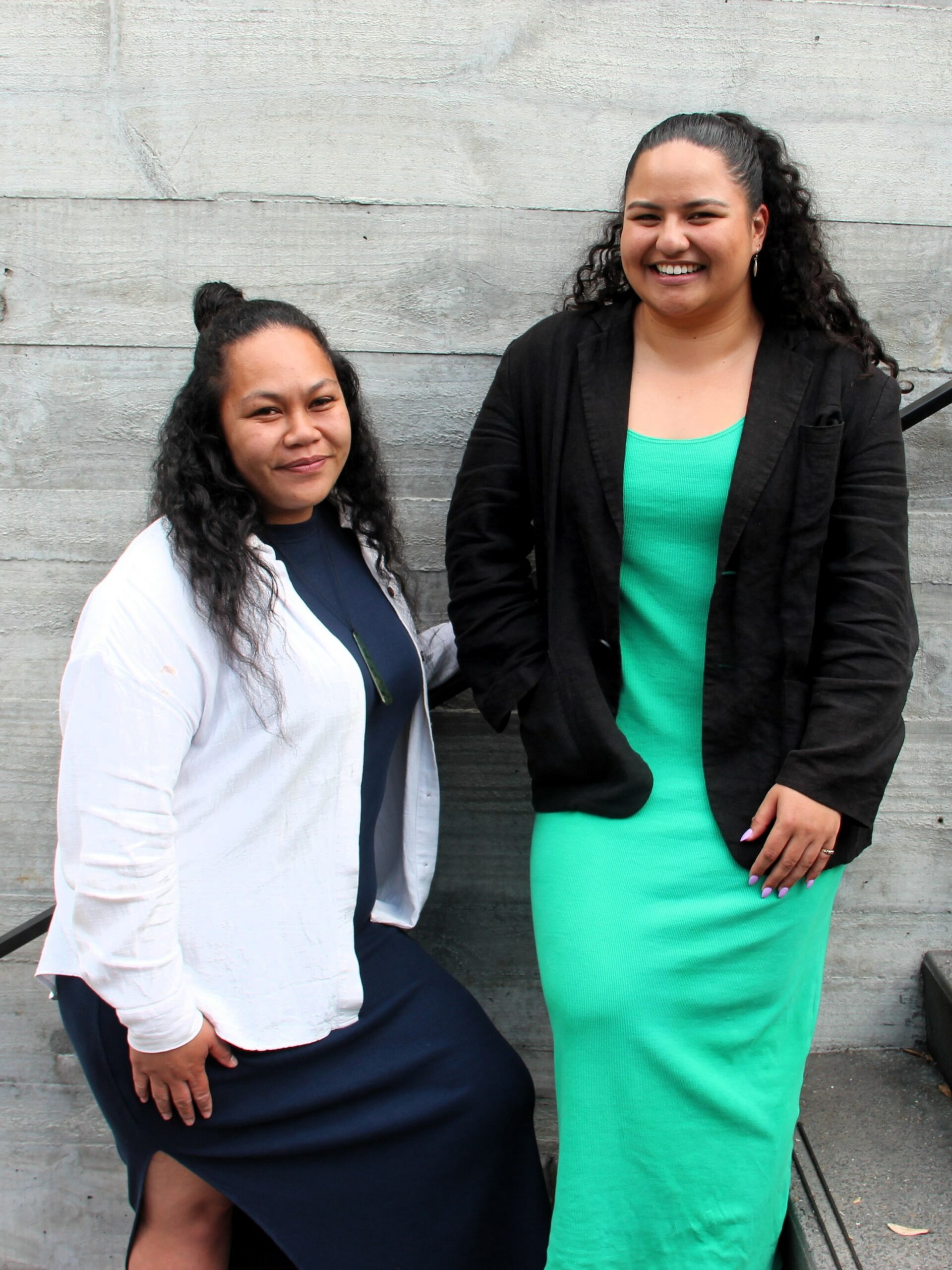
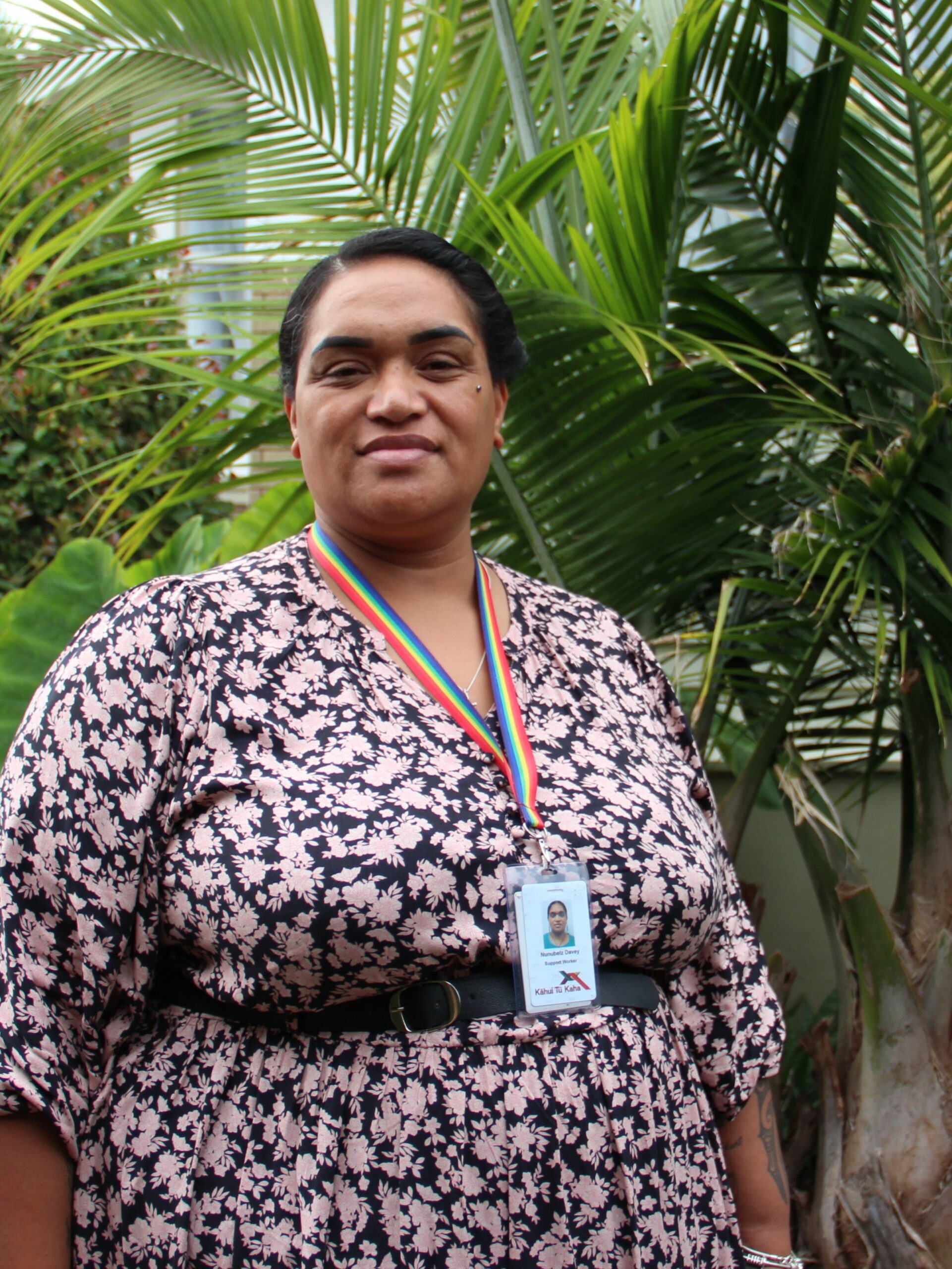
Nunu, Support Worker – Social Housing
Why are you a Support Worker in Social Housing?
I heard about Kāhui Tū Kaha through a friend of mine. When she told me this role was working with transgender tangata, I was interested immediately. I’ve always wanted to do work helping our trans sisters and brothers. Because I’m transgender, and I’ve walked that journey. I think support work is where I’m meant to be.
What’s it like working as a Support Worker in Social Housing at Kāhui Tū Kaha?
I’m a Support Worker across two of our transitional housing sites. Three days a week I’m at Āhuru Pūmanawa, where we provide transitional housing for transgender tangata. The end goal is for our tangata to find a whare. But I’m also here to support with whatever else comes up for a sister or a brother while they’re here. Whether it’s talking about experiences they’ve had, or taking them to the doctors to get on hormones, or even just help with the little things like cleaning and cooking.
Kāhui Tū Kaha is a whānau. I appreciate the support provided by management and by other staff. If you ever need anything, they’re there. Another thing I appreciate about working here is the opportunity to perform with Te Rōpū Kapa Haka o Kāhui Tū Kaha.
What’s the best part of the work that you do?
Just being there for the tangata, knowing that I’m there for them if they ever need my support. I never really went through anxiety when I tranistioned, I came out feeling really confident, but I know that it’s common for people to experience anxiety at this time. It feels great to be providing people with the support they need so that when it comes time to leave Āhuru Pūmanawa, they leave feeling confident.
Manākinui, Pou Whirinaki
Why are you a Pou Whirinaki?
I was at a karanga and whaikōrero wānanga when I met Matua Sam and Whaea Mate. We got talking and when they said ‘there are roles at Kāhui Tū Kaha that are focussed specifically on helping people using tikanga Māori’, I was like ‘oosh, I want to do that!’ I was inspired by the many Māori working within the organisation already, who are weaving Te Ao Māori into their mahi.
At that time, I was working my way through a theology degree. I then completed a Māori leadership programme. This is what led me to this mahi.
What’s it like working as a Pou Whirinaki at Kāhui Tū Kaha?
Currently, I work within our Ara Whakawhiti Transitional Housing service and am based at the Aktinson Ave site in Ōtāhuhu. I work part-time and spend most of my time here at Atkinson Ave, with the rest of the team.
My day-to-day involves catching up with tāngata, working through their stories of whakapapa, connection, and place, facilitating training for our support workers that draw from kaupapa Māori, or running te reo classes for tāngata that want to further their reo journey.
I work with people from all walks of life. I get to witness and walk alongside people and their life journey. Whether it’s supporting them into a new home, tuku karakia to relieve tensions or even having wānanga on matauranga Māori, I am honoured to provide cultural support for our tāngata.
What’s the best part of the work that you do?
Each tangata is trying to navigate their way through life and I get to jump on board their waka to support them in their journey. The most exciting part for me is when they have ‘arrived’ at a certain destination and we get to look back and see how far they have come.
Seeing those moments where tāngata gain a sense of relief or joy are the moments I cherish most. I have seen tears shed, and stories told. The mahi we do is a privilege.
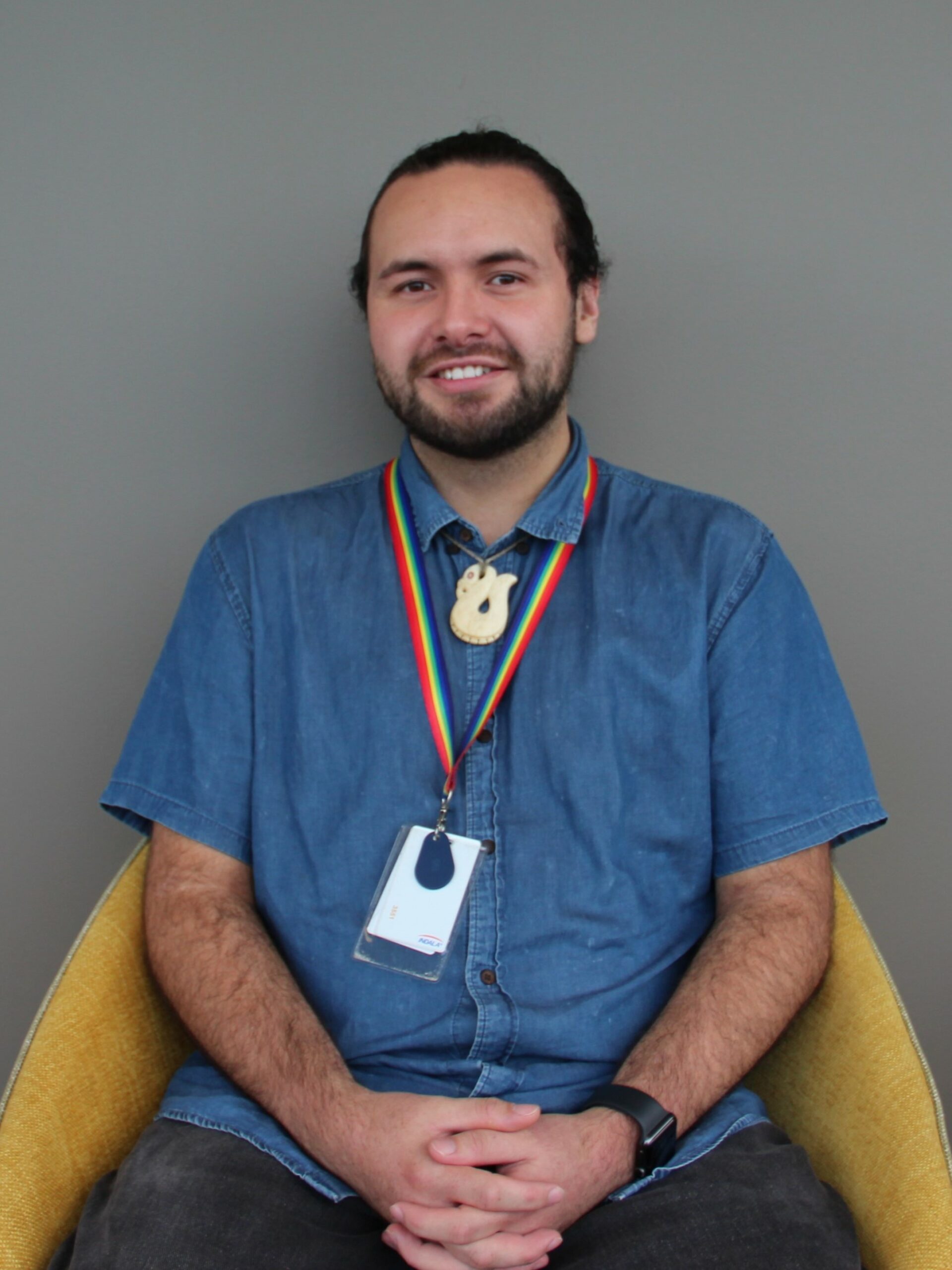
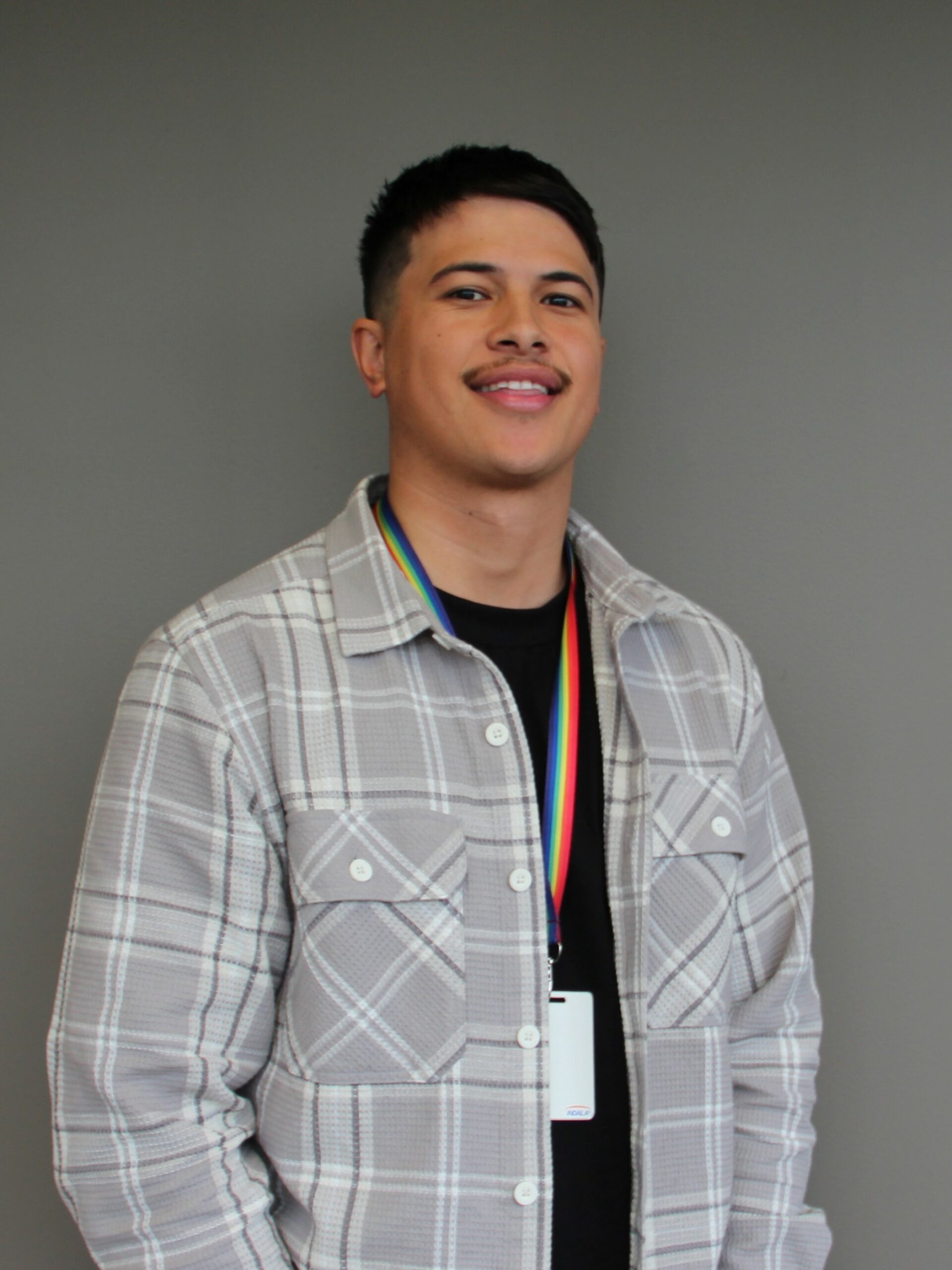
Josh, Tenancy Manager
Why are you a Tenancy Manager?
I studied Business, majoring in Marketing and Management, but I have always had an interest in Property. Before I joined Kāhui Tū Kaha, I’d had various different jobs. I’d been a Valuing Assistant, I’d worked in Marketing, and before here I was working as a Junior Property Manager for a small company. That wasn’t the right fit for me. I was looking for more community-oriented work. I heard about the Tenancy role at Kāhui Tū Kaha, I got the role, and I’ve never looked back!
What’s it like working as a Tenancy Manager at Kāhui Tū Kaha?
The mahi is great, the people are great, and I can be myself. As Tenancy Managers we work alongside our service delivery staff to support our tenants in sustaining their tenancies. I enjoy the teamwork required to overcome barriers or setbacks. When everyone is moving forward together, success takes care of itself.
A typical day for me could involve house inspections, sign-ups, responding to emails, liaising with agents and other external contacts, and attending to tenancy-related queries. To be honest, no two days are the same, we’re always out tending to different jobs and learning new things every day.
What’s the best part of the work that you do?
It’s a cliché but every day we are changing lives and that is definitely the best part of being a Tenancy Manager. It’s so rewarding to see our tangata achieving their goals and sustaining a healthy tenancy. Seeing the joy on people’s faces at sign up is always a feel-good moment.
Dennis, Support Worker – Mental Health
Why are you a Support Worker in Mental Health?
I returned to New Zealand after living overseas for eight years, and asked myself what’s next? My background had been in security, but I was ready to do something different. I talked to my whānau and with their encouragement and the inspiration of my sister, a Social Worker, I applied for work as a Support Worker. I have been doing this type of mahi ever since. I love it.
What’s it like working as a Support Worker at Kāhui Tū Kaha?
I am based at Te Kōtiu, which is a Kaupapa Māori forensic intensive residential service. We work alongside tangata whaiora, helping them with their journey towards independence in the community. A typical day at work normally involves medication support first thing in the morning, followed by karakia in the whānau room with both service users and kaimahi. Then I might be involved with supporting some of our tangata get to their own mahi. There are regular appointments with clinical supports from the Mason Clinic to attend. I might need to advocate on behalf of one of our service users.
Some days there will be a planned community outing; we’ve gone to Muriwai to see the takapū and Spraggs Bush to see the Kauri, among many other places. The role can be challenging at times but it’s also rewarding. There’s always more to learn about being a Support Worker. I’ve been able to complete my certificate in Health and Wellbeing – Mental Health and Addiction Support while working here. I’m also intending on completing a Diploma in Mental Health and Addiction Support in the near future. We are a great team at Te Kōtiu and support each other in our roles as a whānau.
What’s the best part of the work that you do?
In this mahi, there are moments that remind you what an honour and privilege is is to lead through service. For me, one of these moments came after supporting a tangata during a critical incident. The tangata was hospitalised and placed in an induced coma for several weeks. I visited them at the hospital when they woke up, and they said to me, “thank you for saving my life.”
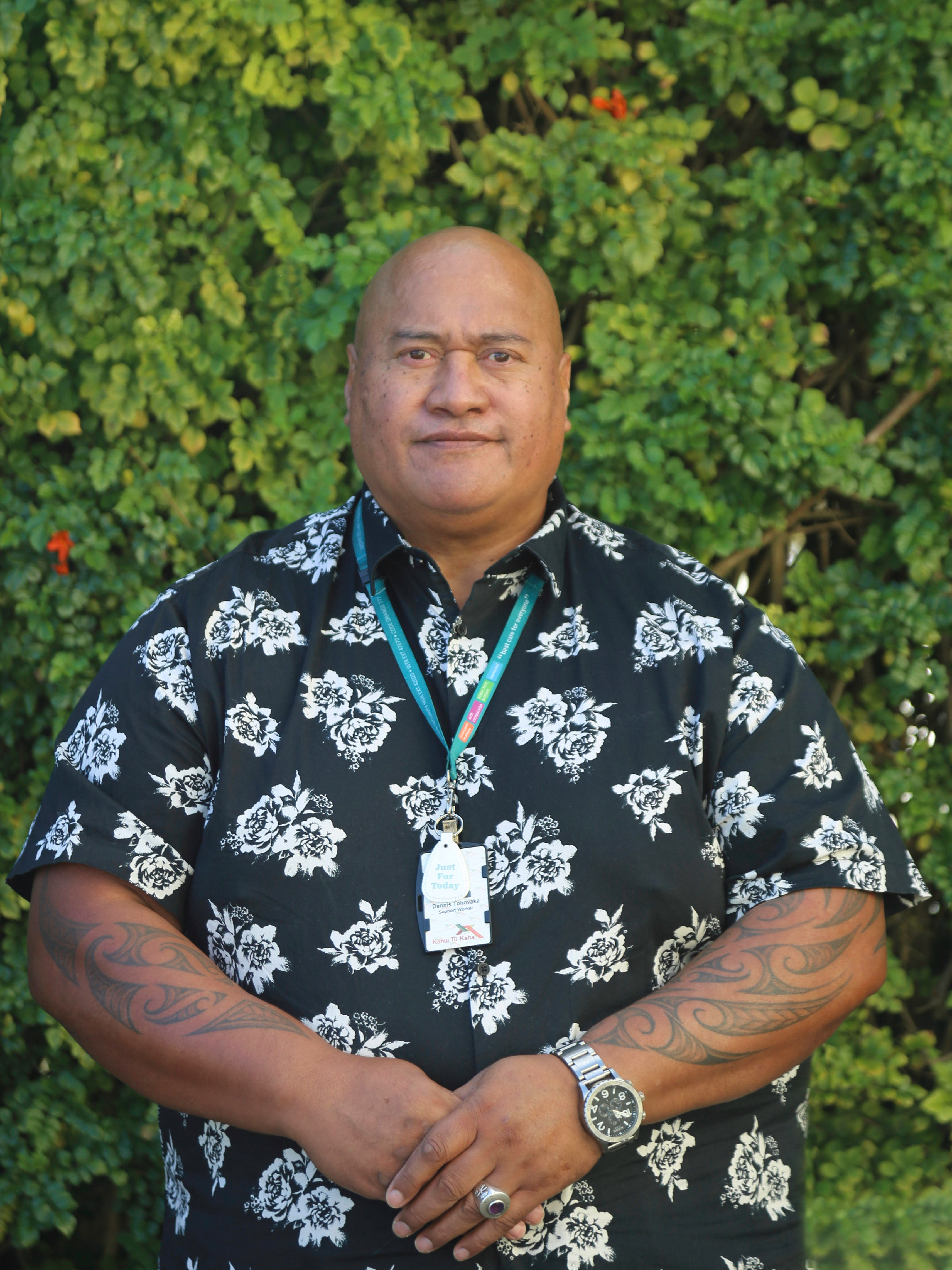
Contact us
careers@kahuitukaha.co.nz
Post: PO Box 74270, Greenlane 1051
Tāmaki Makaurau
UNISYS Building (front entrance)
650 Great South Road, Ellerslie, 1051
Whangārei
191 Lower Dent Street, Whangarei, 0110
